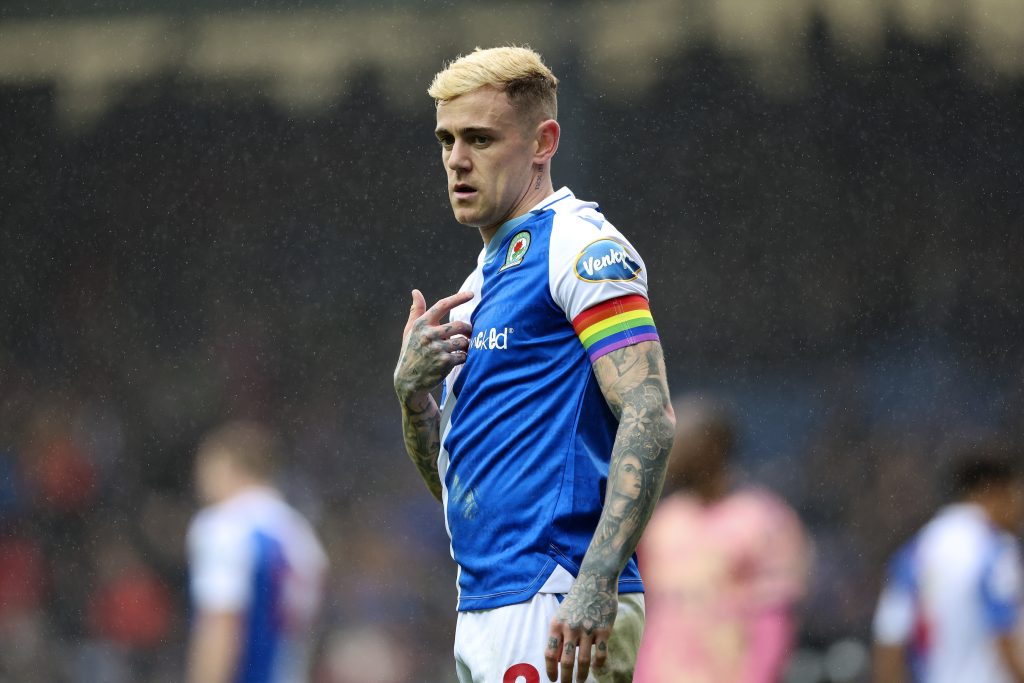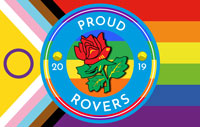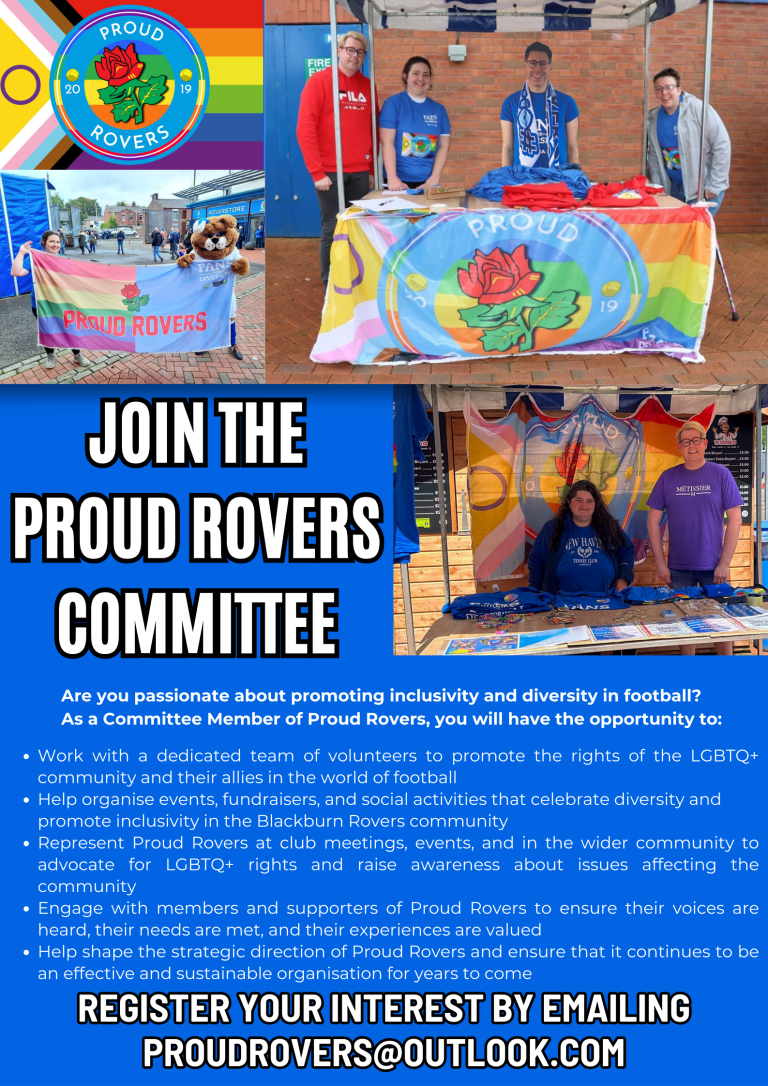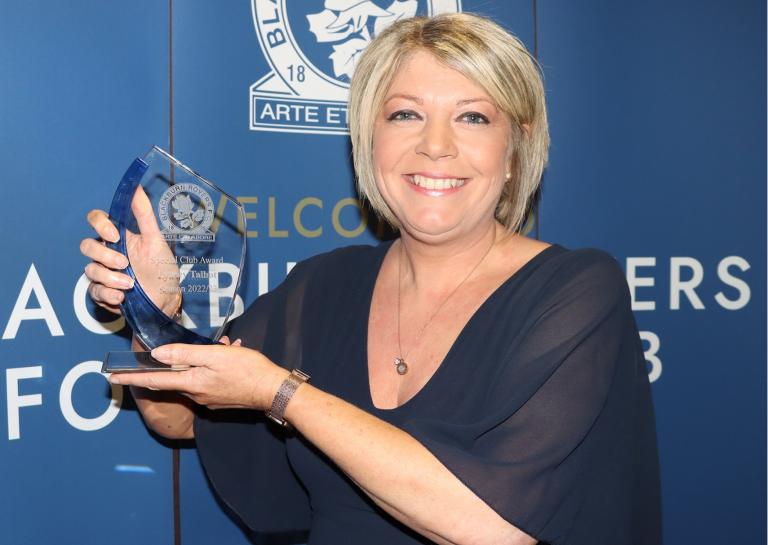1: What does it mean to see Pride represented in the EFL and what does this ball mean to you?
To me, seeing Pride represented in the EFL signifies a long-awaited step towards greater inclusivity and acceptance within football. While the recent Rainbow Laces campaign was a positive initiative, there is certainly room for improvement in how the EFL supports the LGBTQ+ community. Prioritising campaigns like Football V Homophobia is commendable, but it’s essential that both initiatives coexist to address the diverse needs of LGBTQ+ individuals in the sport.
The introduction of the Pride Puma ball is a significant milestone, symbolising progress towards a more inclusive football culture. However, there is still much work to be done. While I appreciate the gesture, I believe the ball could have been more representative of the vibrant diversity within the LGBTQ+ community. Perhaps a more colourful design would better capture the spirit of Pride and celebrate the spectrum of identities it represents.
Overall, the Pride Puma ball serves as a powerful symbol of acceptance and progress in football. It signifies a step in the right direction, but it’s important forthe EFL to continue striving for greater inclusivity and representation within the sport.
2. Does this feel like a big step at all, is football becoming more accepting with initiatives like this and Rainbow laces ?
Absolutely, the introduction of the Pride Puma ball feels like a monumental step forward in making football a more accepting and inclusive space. Never before have we seen a football adorned with Pride colours in the professional game, and while it’s disheartening to see some react with homophobia, it only highlights the importance of initiatives like this.
Campaigns like Football v Homophobia and Rainbow Laces are not just about adding a splash of colour to the game; they’re about challenging entrenched prejudices and fostering a culture of acceptance and respect. In a society where homophobia and transphobia still persist, particularly within sports, it’s crucial that organisations take a stand and actively promote inclusivity.
The main challenge with Rainbow Laces is players’ hesitancy to wear them, often due to finding them inconvenient or preferring their usual laces. Imagine the positive impact if your favourite player proudly sported rainbow laces, with the camera highlighting this detail. It could provide crucial support and inspiration for those who feel fearful or hesitant about embracing their true selves.
As someone who proudly represents Proud Rovers (Blackburn Rovers LGBTQ+ Supporters Group), I’ve seen first-hand the impact that these initiatives can have, both within football and in wider society. By celebrating diversity and sending a clear message of acceptance, we’re not only making football more welcoming for LGBTQ+ individuals but also driving positive change in the world around us.
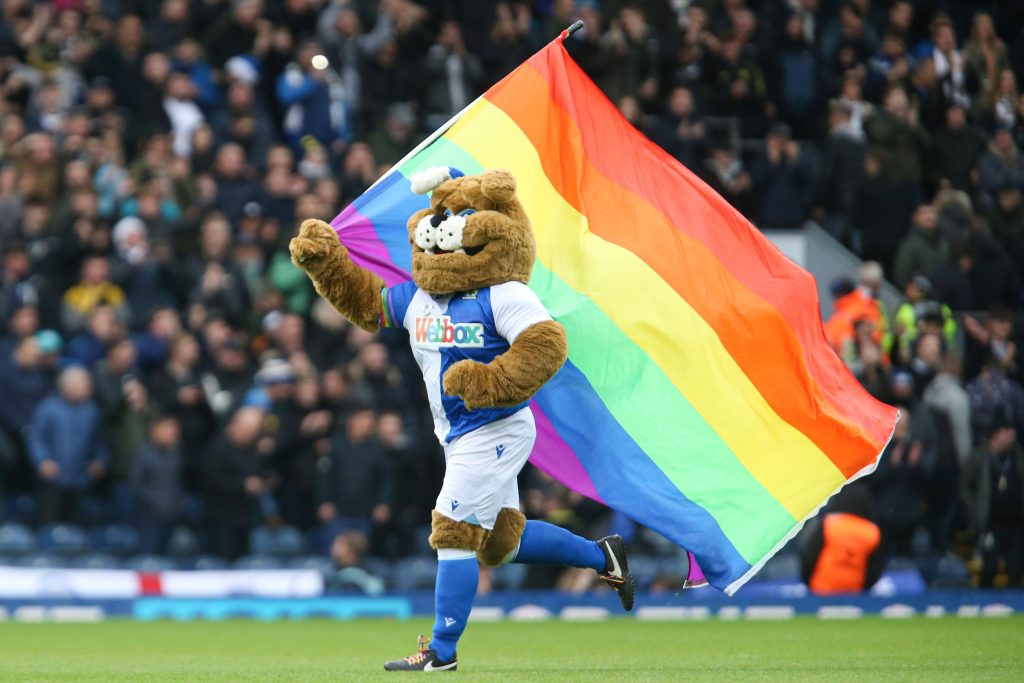
3. What are your thoughts on the negative comments from the club’s fans on social media and how do you deal with the homophobia that still remains in the game?
It’s truly disheartening to witness the negative comments from some of the club’s fans on social media. While we anticipate such backlash when campaigns promoting inclusivity are launched, it’s important to recognise that these comments are not valid and should not go unchallenged. At Proud Rovers, we are committed to confronting discriminatory remarks head-on.
Football is a sport for everyone, and it’s frustrating to hear people claim that discussions about inclusivity and acceptance are ‘political.’ These issues are fundamentally about human rights and respect, not politics, and dismissing them as such is ignorant. It’s telling that those who make such comments often hide behind aliases and lack the courage to voice their views openly.
Despite the persistence of homophobia in the game, it’s essential to continue advocating for change and standing up against discrimination. By amplifying voices of acceptance and calling out bigotry wherever it arises, we can work towards creating a more inclusive and welcoming environment in football.
4. What would you say your overall matchday experiences are like when you are setup with Proud Rovers outside Ewood?
As a Blackburn Rovers season ticket holder, matchday experiences can fluctuate depending on the team’s performance. This season, the atmosphere at Ewood Park has often felt subdued. Unfortunately, I’ve also witnessed instances of homophobic comments directed towards players and even a supporter, disguised as jokes. However, I’m proud to say that these comments were promptly challenged.
On the other hand, when Proud Rovers set up our stall in the Fans Zone, our experiences have been overwhelmingly positive. We have not encountered any instances of homophobia directed towards us, and the response from fellow supporters has been incredibly supportive. It’s heartening to see the inclusive spirit of our club shine through in these moments, and it reinforces our commitment to creating a welcoming environment for all fans.
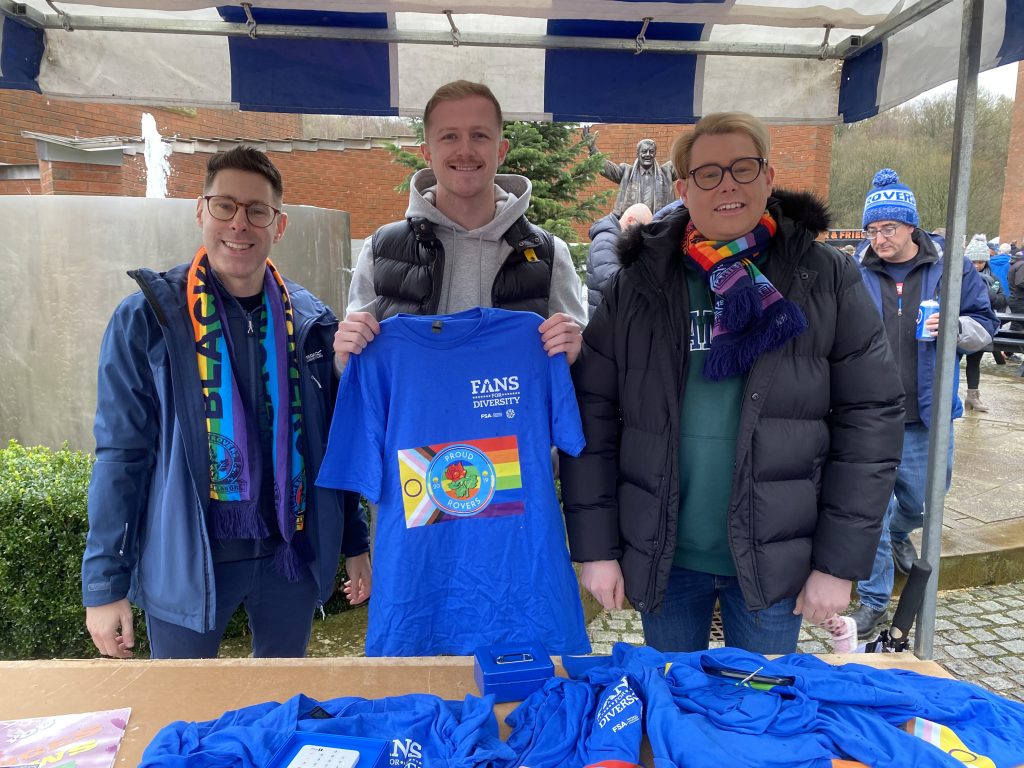
5. Blackburn as a club has consistently promoted diversity- have you felt support from within the club itself.
We have been fortunate to work in partnership with some exceptional individuals within Blackburn Rovers, notably Lynsey Talbot and Juliana Preugschat. Their commitment to the values of Proud Rovers is commendable and truly reflects the inclusivity championed by the football club. With decades of dedication to Blackburn Rovers, they have witnessed both the highs and lows of the club’s journey.
Blackburn Rovers’ recent recognition with an award for Diversity and Inclusion is a testament to the progress the club has made. While we have made strides in encouraging a more inclusive environment, there is still room for improvement. Increased visibility around the pitch, such as on advertising boards, could further amplify our message of inclusivity.
Overall, our partnership with Blackburn Rovers has been incredibly supportive, and we are encouraged by the positive direction we are heading in. However, we recognise the importance of continually challenging ourselves to do better and strive for greater inclusivity within the club and the wider community.
6. Any final thoughts/feelings you’d like to share.
Proud Rovers was established in 2019 by our founder, Hannah Parys. In June 2020, during lockdown, the supporters’ group took a significant step forward with the formation of a committee, which included Hannah Parys, Chris Lofthouse, Luke Cannon, and Lee Spary. In those early months, we initiated meetings with the club, garnered media attention with features in the Lancashire Telegraph, and made appearances on Radio Lancashire and Talk Sport. Our mission is to actively advocate for the LGBTQ+ community. We’ve participated in two Blackburn Prides and organised various events at Ewood Park to engage with supporters. Presently, our committee comprises five members: Chris Lofthouse (Chair), Caroline Birkinshaw (Vice-Chair), Lee Cannon, Lisa Farrell, and Roseanne Silverton. With a growing membership of 130 individuals, we welcome new members to join us. Visit www.proudrovers.co.uk and click “join us” to become a member today.
By Christopher Lofthouse – Proud Rovers Chair
